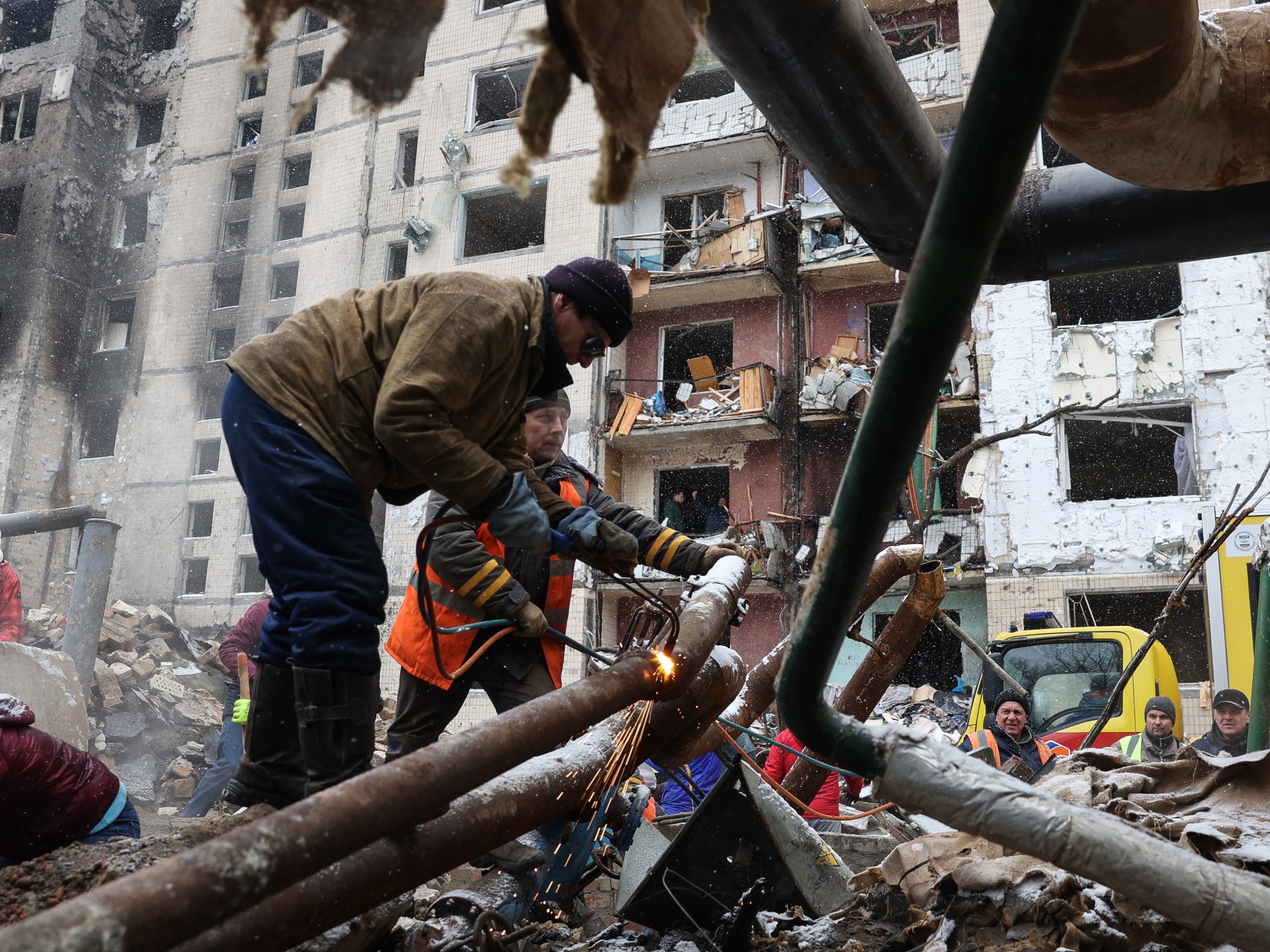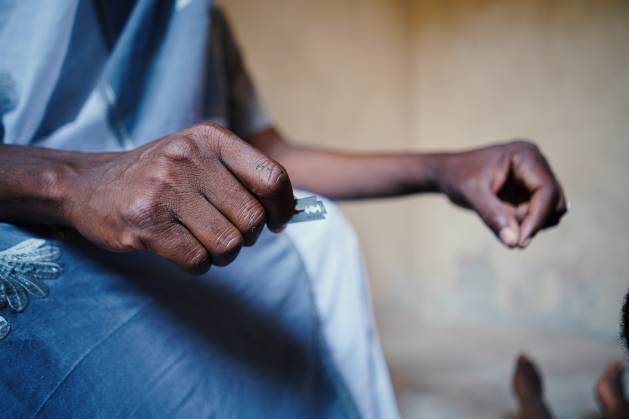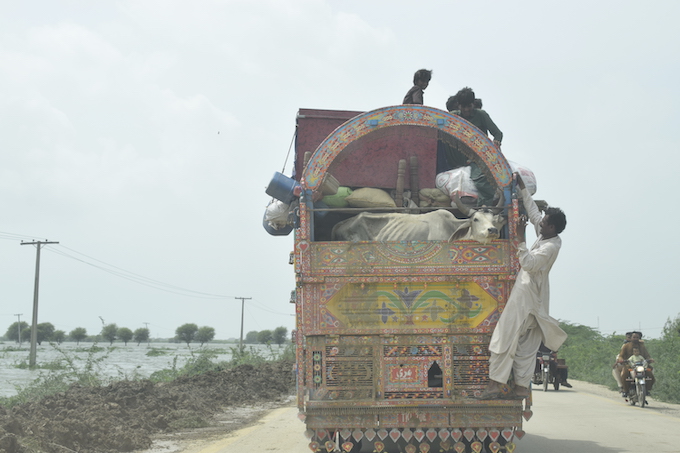World Faces Cascading Crises Causing Profound Suffering & Multiple Famines — Global Issues
UNITED NATIONS, Jul 14 (IPS) – In his opening address to the 2022 Ministerial meeting of the High-Level Political Forum on the UN’s Sustainable Development Goals, July 13-15.Our world is in deep trouble – and so too are the Sustainable Development Goals (SDGs).
Time is running out. But there is still hope. Because we know what we need to do:
End the senseless, disastrous wars – now. Unleash a renewable energy revolution – now. Invest in people and build a new social contract – now.
And deliver a New Global Deal to rebalance power and financial resources and enable all developing countries to invest in the SDGs.
Let’s come together, starting today, with ambition, resolve and solidarity, to rescue the SDGs before it is too late.
We meet at a time of great uncertainty. The world faces cascading crises that are causing profound suffering today, and carry the seeds of dangerous inequality, instability and climate chaos tomorrow.
The ripple effects of Russia’s invasion of Ukraine have hit amid a fragile and uneven recovery from the COVID-19 pandemic, while the climate emergency is gathering pace.
Some countries are investing in recovery through a transition to renewable energy and sustainable development.
But others are unable to do so, because of deep-rooted structural challenges and inequalities, at global and national levels.
Some 94 countries, home to 1.6 billion people, face a perfect storm: dramatic increases in the price of food and energy, and a lack of access to finance.
And so there is a real risk of multiple famines this year. Next year could be even worse, if fertilizer shortages affect the harvests of staple crops, including rice.
The United Nations Global Crisis Response Group on Food, Energy and Finance has warned of the impacts of the current cost of living crisis and the future risks for next year.
Sixty per cent of workers today have lower real incomes than before the pandemic; developing countries are missing $1.2 trillion per year, just to fill the social protection gap; And sixty percent of developing economies are currently in, or at high risk of, debt distress.
Meanwhile, the number of people forced from their homes has risen to 100 million — the highest number since the creation of the United Nations.
The planet’s largest ecosystems – oceans and forests – are in danger. Biodiversity is declining at unprecedented rates.
Discrimination against women and girls continues in all sectors and all societies, while gender-based violence is at emergency levels. Attacks on women’s reproductive rights are reverberating around the world.
Implementing the Sustainable Development Goals will require $4.3 trillion USD per year — more money than ever before — because the international community is simply not keeping pace with the commitments it made;
In the face of these cascading crises, we are far from powerless. There is much we can do, and many concrete steps we can take, to turn things around.
I see four areas for immediate action.
First, recovery from the pandemic in every country.
We must ensure equitable global access to COVID-19 vaccines, therapies and tests. And now it is very important to have a serious effort to increase the number of countries that can produce vaccines, diagnostics, and other else technologies thinking about the future.
Governments must work together with the pharmaceutical industry and other stakeholders to share licenses and to provide technical and financial support to allow many other countries to produce vaccines and other medical important products.
Then we must redouble our efforts to make sure future outbreaks of disease are better managed by strengthening health systems and ensuring Universal Health Coverage.
Second, we need to tackle the food, energy and finance crisis.
Ukraine’s food production, and the food and fertilizer produced by Russia, must be brought back to world markets — despite the war.
We have been working hard on a plan to allow for the safe and secure exports of Ukrainian produced foods through the Black Sea and Russian foods and fertilizers to global markets.
I thank the governments involved for your continued cooperation.
But there can be no solution to today’s crises without a solution to the crisis of economic inequality in the developing world.
We need to make resources and fiscal space available to countries and communities, including Middle Income Countries, that have an even more limited financial toolbox than three years ago.
This requires global financial institutions to use all the instruments at their disposal, with flexibility and understanding.
Among other measures, they must consider raising access limits, re-channeling all unused Special Drawing Rights to countries in need, and reviving the Debt Service Suspension Initiative to provide immediate support to those in debt distress.
We should not forget that the majority of poor people do not live in the poorest countries; they live in Middle Income Countries.
If they don’t receive the support they need, the development prospects of heavily indebted Middle-Income Countries will be seriously compromised.
Looking ahead, we need a New Global Deal so that developing countries have a fair shot at building their own futures.
My report on Our Common Agenda calls for concerted efforts to rebalance power and resources through an operational debt relief and restructuring framework; lower borrowing costs for developing countries; and investment in long-term resilience over short-term profit.
The global financial system is failing the developing world.
Although since it was not designed to protect developing countries, perhaps it is more accurate to say the system is working as intended.
So, we need reform.
We need a system that works for the vulnerable, not just the powerful.
Third, we need to invest in people.
The pandemic has shown the devastating impacts of inequality within and between countries.
Time and again, it is the most vulnerable and marginalized who suffer most when crises hit.
It is time to prioritize investment in people; to build a new social contract, based on universal social protection; and to overhaul social support systems established in the aftermath of the Second World War.
Education is one critical example.
Any hope of solving the world’s challenges starts with education. But education today is racked by a crisis of equity, quality and relevance.
The Transforming Education Summit that I will convene in September is a platform for world leaders to recommit to education as a global public good; to chart a new vision for education systems fit for the future; and to mobilize support in order to move from vision to reality, especially in developing countries.
The Global Accelerator on Jobs and Social Protection for Just Transitions offers another critical entry point.
I urge all countries to make full use of this tool to reskill and retool their workforces for the economies of the future: powered by renewable energy and based on digital connectivity.
Fourth, we cannot delay ambitious climate action.
The battle to keep the 1.5 degree goal alive will be won or lost this decade.
While achieving this goal requires a reduction in global emissions of 45 percent below 2010 levels by 2030, current pledges would result in a 14 percent increase in emissions by that date.
This is collective suicide. We must change course.
Ending the global addiction to fossil fuels through a renewable energy revolution is priority number one.
I have been asking for no new coal plants and no more subsidies to fossil fuels because funding fossil fuels is delusional and funding renewable energy is rational.
Developed countries must make good on their $100 billion climate finance commitment to developing countries, starting this year.
Developing economies must have access to the resources and technology they need.
Half of all climate finance should go to adaptation. Everyone in climate- related high-risk areas should be covered by early warning systems within the next five years.
And we need to review access and eligibility frameworks for concessional finance, so that developing countries, including Middle Income Countries, can get the finance they need, when they need it.
The World Bank and the other international financial institutions must provide much more concessional funding, especially in relation to climate adaptation.
The High-level Political Forum is the place where the world comes together around solutions for sustainable development; for rebuilding differently and better; for achieving the SDGs.
We have the knowledge, the science and technologies and the financial resources to reverse the trajectories that have led us off course.
We have inspiring examples of transformative change.
In just over one year’s time, we will meet here for the 2023 SDG summit marking the halfway point between the adoption of the 2030 Agenda, and its target date.
Let’s do everything in our power to change course and build solid progress by then.
I wish you a successful meeting.
IPS UN Bureau
Follow @IPSNewsUNBureau
Follow IPS News UN Bureau on Instagram
© Inter Press Service (2022) — All Rights ReservedOriginal source: Inter Press Service
Check out our Latest News and Follow us at Facebook
Original Source






